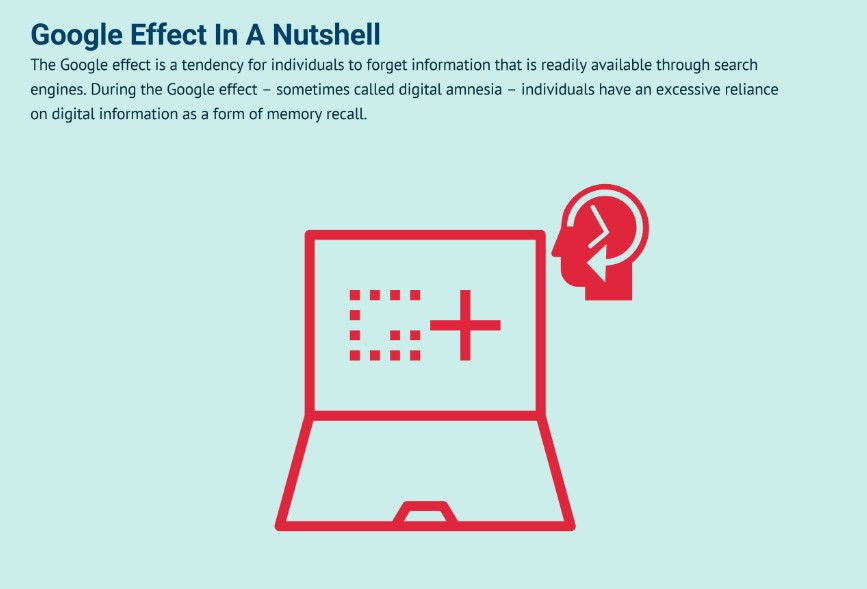In our digital age, the internet has become an indispensable resource for information and knowledge. However, with the convenience of instant access to a wealth of information comes the cognitive phenomenon known as the Google Effect, or digital amnesia. This article explores the Google Effect, its explanations, provides real-life examples, and suggests practical solutions for mitigating its impact on memory and learning.
Understanding the Google Effect
The Google Effect, also known as digital amnesia, refers to the tendency of people to forget information that they know can be easily found online. It is the result of the dependence on the internet to access information and externalize memory.
Explanations
Cognitive Offloading: The Google Effect is largely explained by cognitive offloading, a process where individuals rely on external sources like the internet to store information, freeing up cognitive resources for other tasks.
Information Availability: The knowledge that information is readily available online can reduce the incentive to remember it. People may opt to use search engines instead of recalling facts from memory.
Encoding Specificity: When people know they can access information digitally, they may not encode it as deeply in memory because they rely on the internet as an external memory source.
Examples
Spelling and Grammar: Many individuals no longer make the effort to learn the correct spelling or grammar rules since they can rely on autocorrect tools or search engines to correct their errors.
Phone Numbers and Addresses: In the past, people would memorize the phone numbers and addresses of family and friends. Today, with contact lists on smartphones, these details are often forgotten.
Factual Information: The habit of quickly searching for facts, such as historical events or scientific data, rather than committing them to memory is a common example of the Google Effect in action.
Solutions
Active Recall: Engage in active recall techniques where you intentionally test your memory by trying to retrieve information without relying on digital aids.
Selective Dependence: Be selective about the information you depend on the internet for. Focus on committing important facts or knowledge to memory while using digital resources for reference when needed.
Mindful Learning: When studying or learning, be mindful of the Google Effect and make a conscious effort to understand and retain information rather than relying solely on search engines.
Limit Digital Dependency: Set limits on the use of digital devices and tools for memory-dependent tasks. Encourage the use of memory and mental effort to retain and recall information.
Conclusion
The Google Effect, or digital amnesia, is a fascinating cognitive bias that highlights how the internet has reshaped the way we access and store information. While the convenience of the digital age is undeniable, it is essential to be aware of the potential consequences of over-reliance on the internet for memory and learning. By actively engaging with and committing important information to memory, setting boundaries on digital dependency, and practicing mindful learning, individuals can mitigate the impact of the Google Effect and preserve their cognitive abilities.
